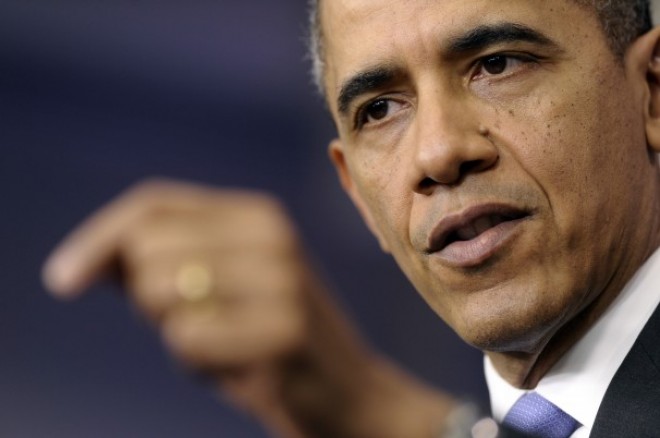
At the end of the year news conference, Reuters's Mark Felsenthal asked:
As you review how to rein in the National Security Agency, a federal judge says that, for example, the government has failed to cite a single instance in which analysis of the NSA's bulk metadata actually stopped an imminent attack. Are you able to identify any specific examples when it did so? Are you convinced that the collection of that data is useful to national security to continue as it is?
But President Obama never answered the question about a specific examples. Instead he spoke more broadly and tied the program, again, back to 9/11.
What I've said in the past continues to be the case, which is that the NSA, in executing this program, believed, based on experiences from 9/11, that it was important for us to be able to track, if there was a phone number of a known terrorist outside of the United States calling into the United States, where that call might have gone and that having that data in one place and retained for a certain period of time allowed them to be confident in pursuing various investigations of terrorist threats.
The president's reliance on a 9/11 narrative is expected. The terrorist attack was a defining moment for a generation and now serves as a tragic reminder of a time when the U.S. government failed to protect its citizens. It's understandable that any president would want to be seen as vigilant in preventing another such attack.
But the reason the president can't cite a specific time the phone meta-data program stopped a similar tragedy is because it hasn't.
Law professor Geoffrey Stone, a member of the presidential task force charged with reviewing NSA programs, told NBC News the group specifically looked for times when the program may have helped prevent a terrorist attack, but "found none." The task force's final report reflects that, saying:
Our review suggests that the information contributed to terrorist investigations by the use of section 215 telephony meta-data was not essential to preventing attacks and could readily have been obtained in a timely manner using conventional section 215 orders.
But the lack of evidence that the program is effective will probably not prevent the NSA's defenders from continuing to invoke 9/11 to protect the program. Another member of the task force, former acting CIA Director Michael Morell, on CBS's "Face the Nation" on Sunday, admitted the group had found that "the program to date has not played a significant role in stopping terrorist attacks in the United States," but earlier in his interview credited the NSA as one of the agencies responsible for the lack of successful terrorist attacks in the United States since 9/11.



“Look, if you think any American official is going to tell you the truth, then you’re stupid. Did you hear that? — stupid.” Arthur Sylvester, Asst. Secretary of Defense - 1965
That goes for this NSA BS, and the 9/11 fairy tale, and all the other hoaxes perpetrated upon us for the benefit of the PRICs (Psychopaths really in charge).
Ho ho ho - merry Xmas, it might be our last